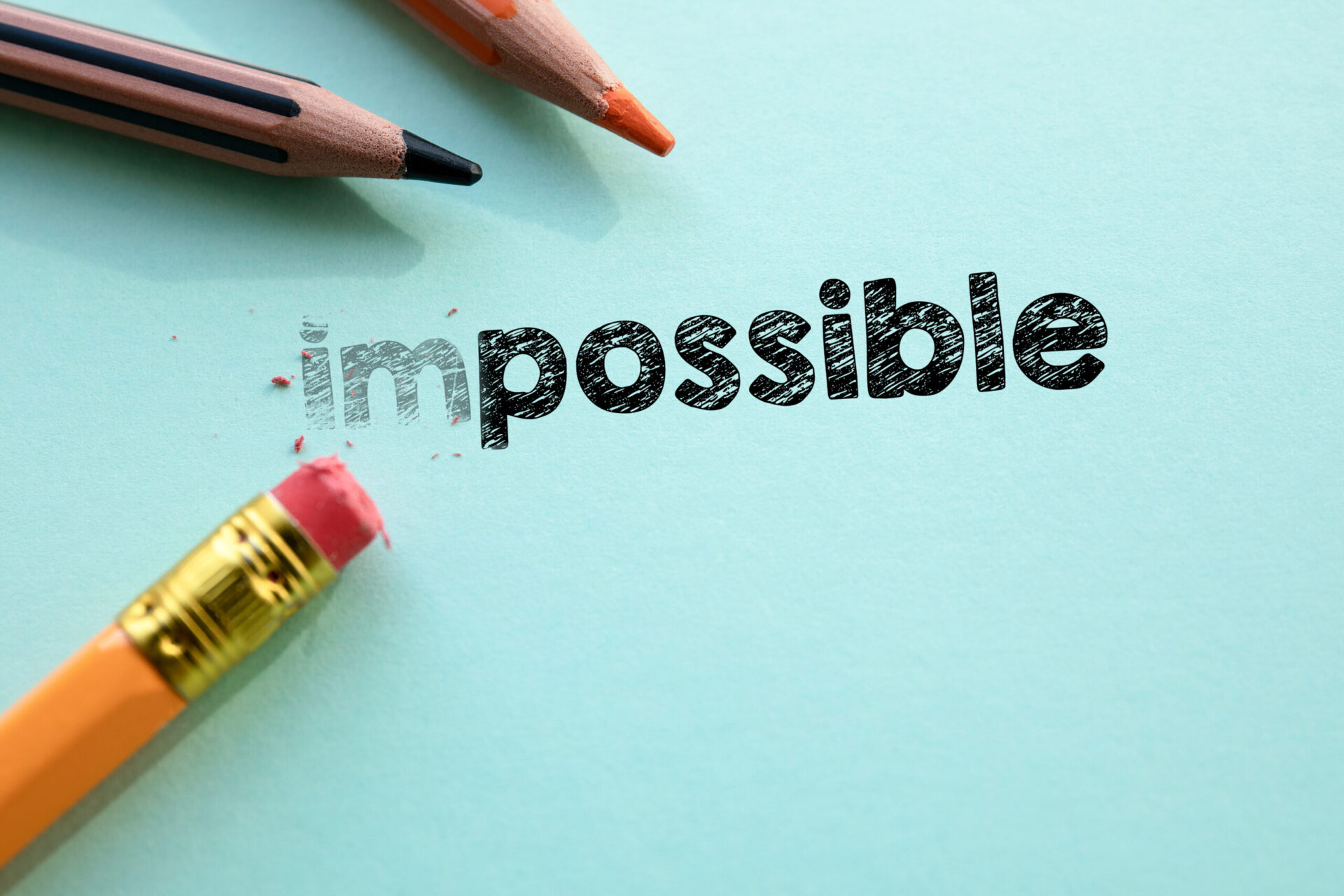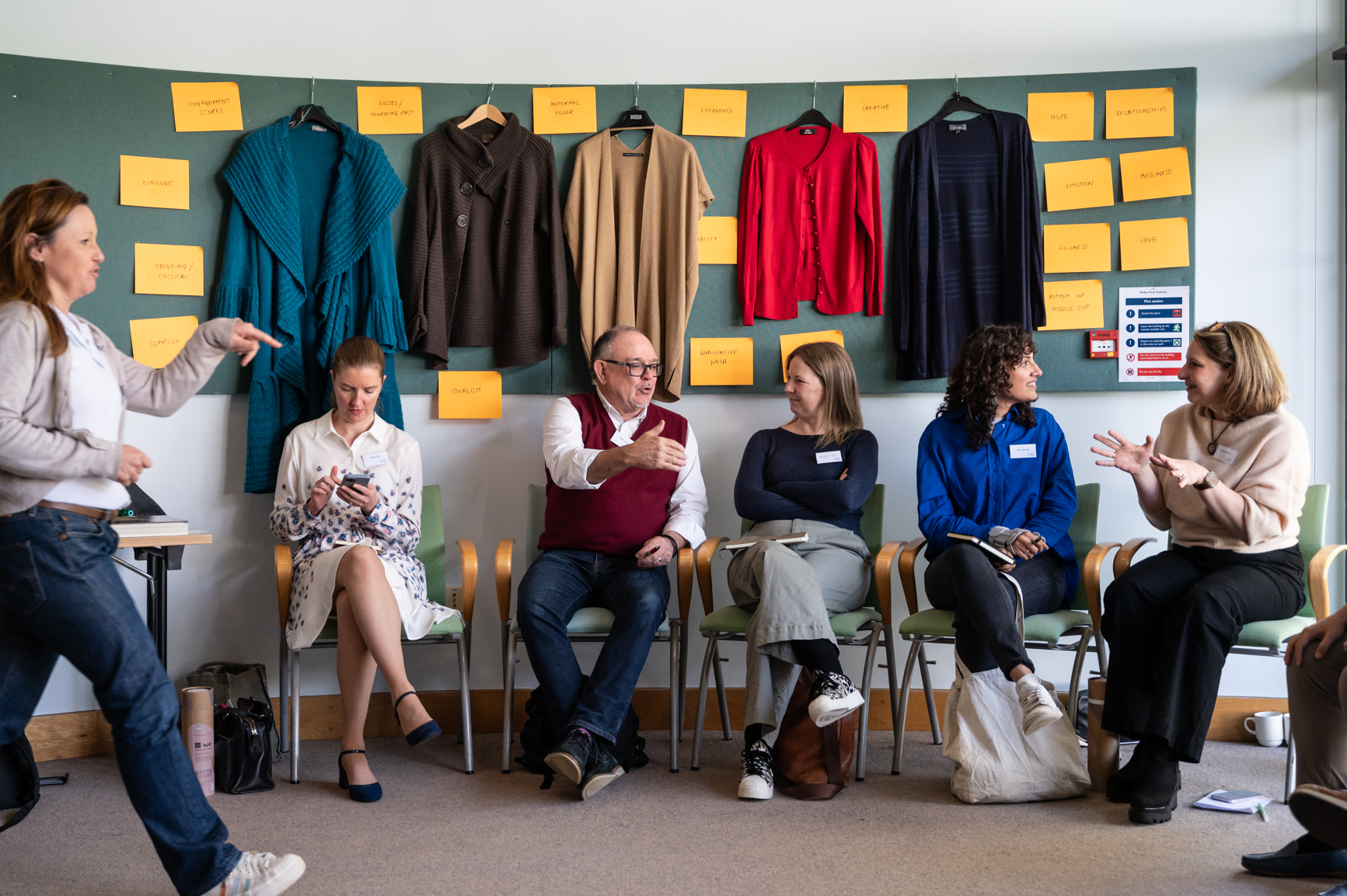In March 2020 Roffey Park’s courses in leadership, management, resilience and coaching were all delivered face-to-face. Overnight, that business model stopped working when Covid-19 stopped travel and social contact. In just four months, Roffey Park became truly agile, creating a digital learning platform which allows them to recreate their methods online says Chief Executive Officer, Dr Robert Coles.
Tell me about Roffey Park’s digital business?

“If we go back to 23 March when we shut down Roffey Park, we didn’t have a digital business at all. Historically we made it a virtue that it’s not what we do, because of our history around group dynamics and dialogue and intensive personal learning. The wisdom was you can’t do those things digitally, but the good news is that has turned out to be wrong. You can do these things digitally as long as you don’t resort to e-learning. “In four and a half weeks we built a platform for digital learning with some initial propositions around a programme called Navigator and we launched a new digital business from scratch. It was a massive team effort and showed two things: that necessity is the mother of invention and that in times of normal life we create barriers to change because normal is something we want to maintain. A lot of the thinking behind these barriers to change are the problem themselves – there are no barriers to change and we proved that by the bucketload in that 4.5 weeks we designed something that in normal circumstances we would have considered impossible. We learned that from it. “We also learned that agile as a way of thinking is phenomenally powerful for galvanising dispersed teams. From 13 weeks ago, we have gone from people that knew the term but didn’t really believe in the concept to being very good practitioners of agile action and agile learning at the same time. We’ve had great fun. “What came out of that was a working assumption that we were going to do the Roffey Park thing but in the digital environment. So we will continue to focus on personal transformation and deep dialogue as well as skills acquisition. “We’ve proved that’s entirely possible, which is very cool, and we are not going to go down the road of pre-packaged generic e-learning. That’s because e-learning is absolutely contradictory to our concept of learning, which is that whether you are in a digital space or physical space or anything else in between we are fundamentally social beings and human learning therefore is fundamentally social. As I said to the team a few weeks ago I am immensely proud of what they have achieved in a very short space of time and in a period where our revenue went to zero overnight, to stay that focused and that united was a testament to the strength of the institute.”
Why did you think it was impossible?

“I didn’t think it was impossible. The reason it was thought to be impossible institutionally was an assumption that what had evolved in recent years of a very intensive small group approach to organisational learning was so utterly superior that nothing else was worth doing. What the digital opportunity in the Covid crisis has taught us is that we don’t have to be elitist about our method – it can be applied to groups of 100. We’ve run, digitally, dialogic and engagement-driven seminars with 100 plus people attending very successfully. There was a time when we would have said anything bigger than a group of 6 can’t be done in a dialogue. We know now that that was always not true. “We’ve returned to our roots and the digital opportunity has enabled us to do this. The great irony is we’ve become much more democratic in our approach to learning, which is what we were supposed to be in our formation. We’re once again engaged in the idea that learning breaks down barriers between managers, organisations, their workers and stakeholders. Learning can and does and should break down barriers between all those parties for the good of everybody and our digital experience tells us we can reach back to our foundation statement in the 1950s and pull it forward to our digital age and it works. “It talks about using social sciences research and education to break down barriers between workers, their managers and leaders and between organisations for the benefit of all participants.”
So you’re feeling very positive about your transformation and digital learning?
“Given the difficulties organisations are going to face now as we come out of the Covid period that foundational purpose is the root of every piece of thinking that every organisation is going to have to do. Who will we be representing, who do we care about, who are we in dialogue with, to what extent are we engaging with people in developing ways out of the post-crisis recession? Are we just going to lay people off by the tens of thousands because that’s the easy thing to do or are we going to get into a dialogue about alternative forms of organisation that keep people in work? “It has been energising for us and brought us into a much more engaged and sensitised view of what our purpose is in what we do so for us it has been a transformation. But not just a transformation going forward but a transformation that has reached back into our history and brought us into the present.”
What are digital learning advantages?

“We can combine a physical and virtual cohort of people and one of the great advantages of the digital approach to learning is you can enable people with learning difficulties or physical and other disabilities to attend classes they might not otherwise be able to attend. You can also reach into communities that possibly wouldn’t come to Roffey Park because in the sense of it being a very special place which can work positively and against us. People from minority backgrounds, people for whom English is not a primary language, people who might self exclude on the basis that they are not worthy of being there. I remember going to university and having a sense of ‘am I good enough to be in this place’? Digital for us is a great social leveller, it expands our reach into communities and countries that we currently can’t access in order to share that dialogue-driven approach to learning.”
Tell me more about the Roffey Park approach to transforming digital learning. How is it different to e-learning? How do you see digital learning vs classroom learning?
“We’ve had many clients ask when it will be safe to come back for classroom learning and the strong possibility is the answer isn’t for many years – or at least not until there’s a reliable vaccine. That reflects the fact that organisational leaders know that surveys tell them the least favoured method of learning is eLearning. People don’t like it: it isolates you, puts you in a box with a bit of knowledge and doesn’t engage you socially or creatively. It’s good for certain types of learning, good for acquisition of how-to at a personal level but isn’t good for judgment-based interpersonal learning at all. “You simply can’t do it. In an ideal world our clients want people to be in the world together so they can debate and create judgments and answers to situations and problems. What we’re trying to do with technology is take our founding core principle of dialogue breaking down barriers, creating sustainability and resilience, and use technology as an enabler of that dialogue. It works very well and we can reassure our clients we are not about to send them off into the world of faceless non-contextualised digital content – that’s not what we do. “Everything we do will remain contextualised because context creates understanding and context has to be shared and debated and worked through. It’s all very social in the way we understand learning so we are trying to provide people with ways of doing those same things they want to do in the way they want to do them and showing that technology isn’t necessarily a barrier to doing those things if you use the right technology for the right reasons.”
Are there digital learning disadvantages?

“Yes, there are disadvantages to digital learning but for us rather than our clients. Digital learning environments are more expensive which is an interesting thing to find out when you have an asset like a campus that needs constant updating and upgrading. The digital environment has many of the same issues in a different way. At a practical level, for a facilitator in an analogue classroom you have one group of people doing one thing at a time in front of you. In a virtual environment there’s the main environment, breakout rooms and a chatroom going on and beside that you might have people having private chats amongst themselves. All sorts of things can be going on as well as maybe technical issues or insufficient bandwidth so every programme we run requires a moderator in the background to deal with all of those things so the facilitator can get on with what they are doing making it more intensive and expensive to operate. The major difference is that an hour of classroom time- in terms of content, discussion and learning – takes about 1.5 hours in the digital environment. That means it’s by no means as efficient – a day long programme which for us might start at 9 and finish at 5 with lunch and coffee breaks suddenly turns into six two-hour modules. Wisdom is that people can’t really do any more than two of those two-hour modules each day, or they’re cognitively wiped out so that one-day programme takes up to a day and a half to deliver, in anything from 3 to 5 days. The fragmentation of daily programmes into hourly or two hourly slots which have to be scattered through people’s diaries make the logistics significantly more complex. “This is one of our big challenges. We are learning rapidly as we go how to manage our utilisation, our cost base and our facilitation efforts so that it remains cost-effective to the client and the learning is effective to our cohorts and commercially effective to us.”
What is your digital learning strategy? Should all organisations have a digital learning strategy?

“Every organisation should have a learning strategy, part of which is digital, and which becomes the basis for their digital learning plan. “Here’s how I would understand a digital learning strategy: if you have two sliders next to each other, one of which is pointing towards one end which is completely generic predesigned content the other end is dialogue and co-generation of content so that’s one slider. On your other slider are three levels of learning: broadly speaking how do I acquire use of tools, how do I then practise those tools and become more proficient and how do I exercise judgement on whether those tools are the right thing to use in the first place? All good learning strategies now have to move those sliders up and down. You can make a very strong case for tools-based learning – how do I do something or what is the meaning of something or for example what is feedback? I can learn that in a pre-packaged generic piece of elearning. But how do I give feedback – that practice level thing – you can practice that in a digital classroom. Or online coaching and mentoring, for example, you could be judging what right do I have to give feedback? Do I know enough about the situation that I am seeing to be able to give feedback and if I don’t how do I address those things? “That’s something we would traditionally have said needs to be physical and in the classroom but now in our way of doing it, our blended, synchronous approach to classrooms can be both digital and personal at the same time. I think any organisation that sees its digital learning strategy with those two sliders moving up and down is approaching things in the right way.”
What level of interest is there in Roffey Park’s digital leadership and management skills courses?
“It’s huge, literally huge. Thankfully we’ve learned a lot from the willingness of clients to talk to us and say nope, that didn’t work and work with them to make sure it did work. Interestingly they turned up expecting the Roffey Park experience online which was a great expectation but initially beyond our skill levels. We’ve never done that before and we’ve become very good at it. Our first complete programme we launched in May which is one of our organisational development programmes and it keeps on selling out every time we put it up. People don’t want pre-packaged, pre-formatted elearning, they want context and dialogue-driven experience of learning in a digital and blended environment and we seem to have found that perfect balance.”
So will everything Roffey Park has done in the classroom be available as digital learning?
“A fair amount will be ready by September but we have a programme internally which will redesign absolutely everything we do to fit that multichannel approach to learning, with that same fundamental approach to facilitation sitting underneath it. All of that will be done by December.”





